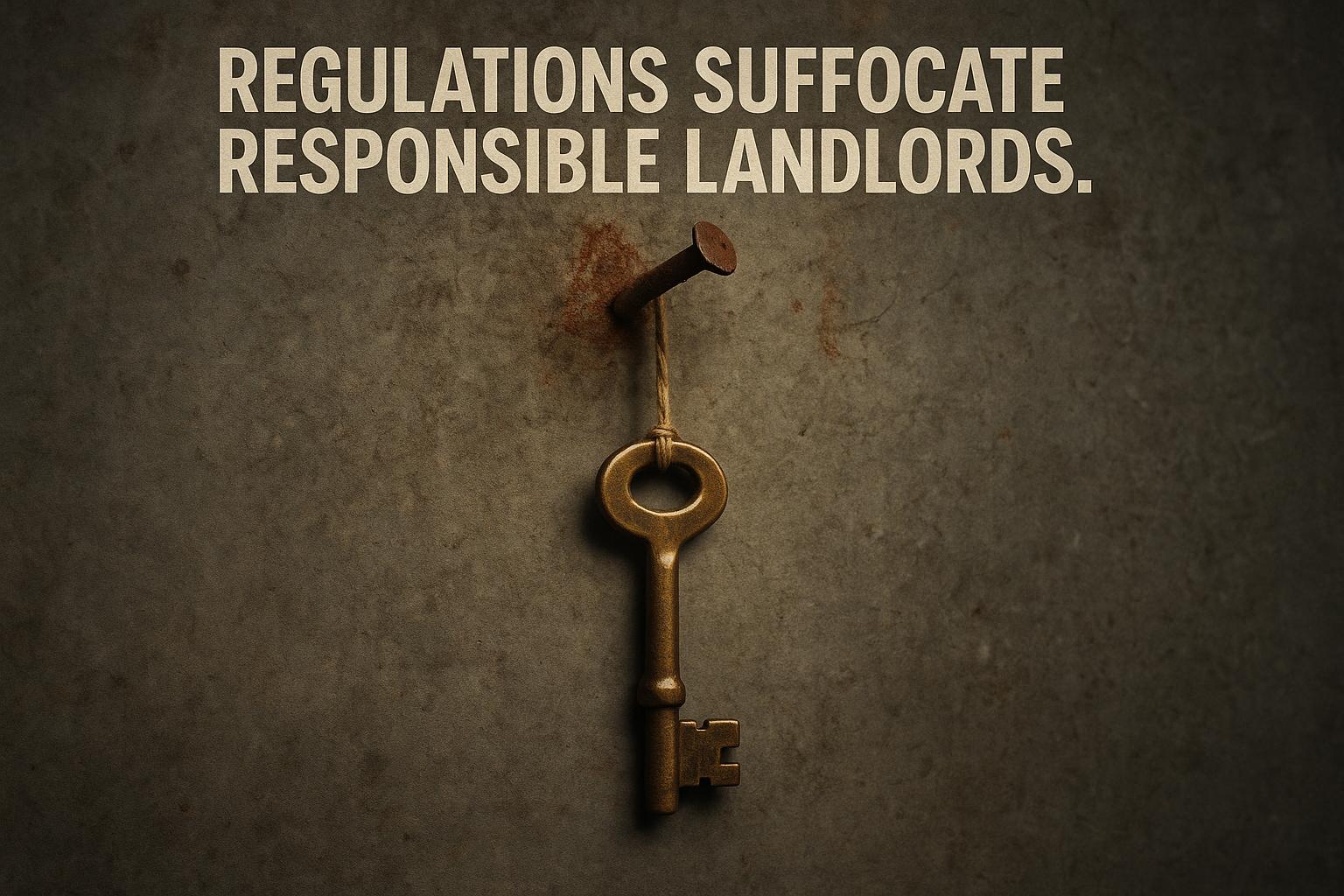The recent revelation that Chancellor Rachel Reeves failed to secure a selective licence for her London home exposes yet another example of the systemic failures that plague the rental sector under this government’s watch. As detailed by the Daily Mail, Reeves’ family residence in Dulwich was placed on the rental market without the necessary authorisation, highlighting a widespread neglect among landlords—whether they be high-profile politicians or everyday property owners—regarding compliance with licensing schemes designed to uphold tenant safety and housing standards.
This oversight underscores the ongoing chaos within the UK's regulatory framework, which is increasingly complicated and burdensome for responsible landlords. While local authorities like Southwark impose hefty fees—£945 for a licence valid for five years—much of this regulatory weight falls disproportionately on the shoulders of landlords trying to do the right thing. The fact that the letting agency involved initially intended to apply for the licence but then failed to do so is emblematic of the broader disconnect and lack of accountability in a system that seems more focused on revenue collection than genuine tenant protection.
Furthermore, the coercive licensing schemes are just the tip of the iceberg. Numerous councils across England—Waltham Forest, Westminster, Lambeth, Brighton & Hove, Mansfield, and Manchester—are expanding their selective licensing initiatives to clamp down further on landlords. These schemes are not only costly but also serve as barriers for genuine property owners attempting to navigate a complex web of regulations that seem designed to entrap rather than empower responsible landlords.
It is clear that the so-called protections purportedly offered by these schemes are superficial. Landlords like those under pressure from these policies are left scrambling to meet ever-changing requirements such as HMO licensing, safety certifications, and environmental standards—often without clear guidance or sufficient support. The widespread confusion and the escalating costs—fees that average around £700, with some councils charging nearly £900—are raising the stakes for small landlords who are being squeezed from all sides.
The government's failure to streamline or genuinely support landlords only deepens this crisis. Despite formal guidance, compliance remains an uphill battle, as highlighted by the National Residential Landlords Association, which notes that over 170 regulations govern the sector. The upcoming Renters’ Rights Act threatens to impose even more burdens, including the creation of a national landlord database and mandatory Right to Rent checks, which will do little to address the core issues of housing quality and affordability. Instead, these measures risk punishing honest landlords while doing nothing to tackle the root causes of poor rental standards.
For tenants, this regulatory labyrinth often results in unintended consequences—tenant claims for back rent, fines, and the threat of eviction become commonplace amid this climate of overregulation. The abolition of Section 21 no-fault evictions, replaced by increasingly cumbersome procedures under Section 8, will only complicate matters further, leaving landlords with fewer tools to manage their properties effectively.
This situation is further exacerbated by the government's inability to provide real, effective solutions that empower responsible landlords, who are essential to addressing the housing crisis. Instead, policies are moving in the direction of greater policing, more licensing schemes, and punitive measures that stifle entry into the rental market altogether. As this regulatory overreach continues, genuine landlords are being squeezed out, leaving tenants with fewer choices and agencies more power to enforce arbitrary standards.
In light of this, the case of Rachel Reeves serves as a stark reminder: outdated regulations and overbearing compliance requirements are increasingly making it impossible for landlords to operate without risking penalties. Instead of fostering a fair and straightforward housing market, these policies create a cycle of confusion and disillusionment, ultimately harming the very tenants they purport to protect. It’s high time for a wholesale reform—one that decentralises power, reduces unnecessary red tape, and restores trust in responsible landlordship. Only then can the UK hope to address its housing challenges in a practical and sustainable way.
Source: Noah Wire Services
